Exclusive! Vinay Forrt: I want to do roles that live on forever and Malik offered me that chance
The Malik and Churuli actor talks to OTTplay about his upcoming movies, his struggles while starting out in the industry and the impact of Premam and Thamaasha in his career
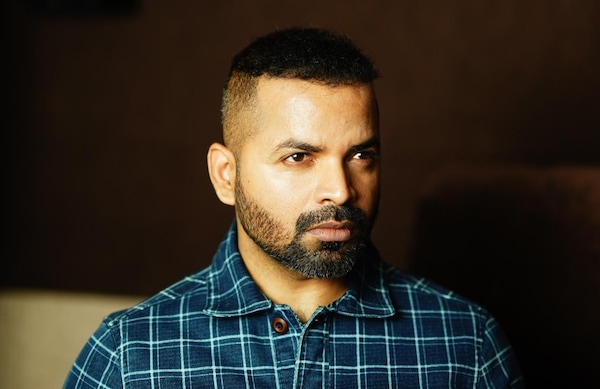
Vinay Forrt
Last Updated: 05.20 PM, Jul 12, 2021
The wait has been long for Vinay Forrt. Last March, days before the lockdown was announced, the actor was upbeat about his upcoming releases. His movies Mohan Kumar Fans and Malik were supposed to be festival releases in April 2020. The family entertainer and the political thriller, respectively, had him in career-defining roles. Add to that his lead character in Lijo Jose Pellissery’s Churuli and Vinay admits that he was waiting for the next phase of his career only for it to be delayed.
While the pandemic held up the movies, Jismon Joy’s Mohan Kumar Fans released in theatres and on OTT a few months ago. On July 15, Mahesh Narayanan’s Malik, which has Fahadh Faasil in the lead and Vinay as second lead, will release on Amazon Prime Video and Churuli too will follow in the subsequent weeks.
In a candid chat with OTTplay, Vinay talks to us about his upcoming movies, his struggles while starting out in the industry and the impact of Premam and Thamaasha in his career.
Malik’s release was shifted thrice and now it’s finally dropping on OTT. Could you tell us about your role as David Christudas in the movie and how different is it from your previous characters?
Malik is a big film in all sense of the word. In the past, when movies were made on this budget, you were usually given a mace and asked to stand in the side. I never expected to be given so much space in a such a big commercial film. I remember Maheshettan one day calling me and saying that he wanted to make this movie with Fahadh, me and Nimisha. I thought he was pitching it like that so that I agree to do the movie and ultimately, I would just be there for 4-5 scenes in the film. This happened before Thamaasha had released.
It was a three-and-a-half-hour narration and after a point, my attention span wavered. So, he gave me the script. I went home and began reading. For the first 15 minutes, my character was not present and I thought this was a repeat of what eventually happens to me. But I gradually got hooked to the screenplay and my character David. Content-wise, even though Malik is a film led by Fahadh, Maheshettan through his writing and making has done justice to every character. It was a golden opportunity for me.
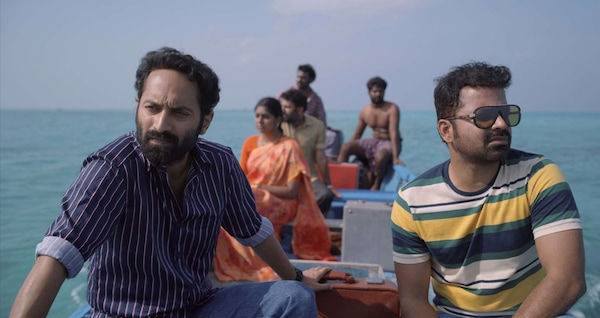
You play David in four get-ups in the film and it’s also a character with grey shades. You had pretty much allotted five to six months just for Malik in 2019. What were the challenges of playing the role?
As an actor, I wish to do roles that live on forever. I want my work to be remembered and discussed even 500 years later. Malik offered that kind of work. Also, some filmmakers are technically brilliant, others’ writing makes them stand apart, there are few who know how to exact the best out of their actors and then there are those who are a storehouse of knowledge. Maheshettan is the mix of all these. You can have a serious discussion with him about rocket science.
When we were shooting in Lakshadweep, for some reason, there was a cluster of dead fish. (Cinematographer) Sanu John Varghese and Maheshettan suddenly deep dived into a discussion about fish and chemical reactions in the oceans. So, he’s that knowledgeable.
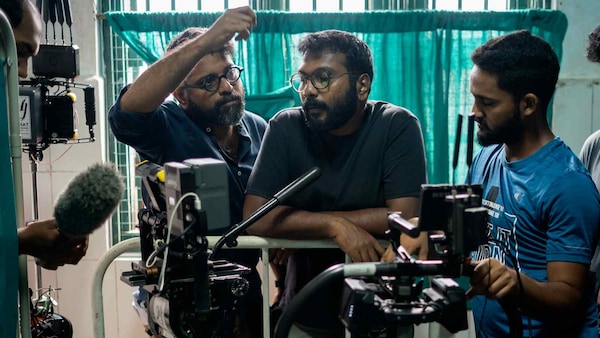
Talking about David, about 90% of the characters that are offered to me have some sort of inferiority complex. Especially after Thamaasha, I have been getting roles of a youth who is struggling to find a bride. That’s when Churuli and Malik happened. Both these characters have shades of grey, just like ordinary people. I also think every character in Malik is like that.
The emotions that an actor can traverse in a movie is often restricted. For instance, my character Agosh Menon in Mohan Kumar Fans is a reflection of different levels of stupidity. But David, from his 20s to early 60s, goes through a lot of highs and lows filled with sorrow, happiness and revenge. There is a depth in the relationships he shares with his sister (played by Nimisha Sajayan), Sulaiman (Fahadh), his parents and Peter (played by Dinesh Prabhakar). The past and present of these characters are so well defined in the movie.
Dinesh and I were talking a few days ago if we would ever do such a film again. We travelled together for six months; the movie was shot in Kochi, Thiruvananthapuram, Colachel, Kanyakumari and Lakshadweep. It was a journey. Right after the song Theerame released on Saturday, I listened to it 10 times. It made me very emotional because the track was the backdrop during our shoot in Lakshadweep.
With Churuli also set for an OTT release soon, would it be safe to say the nickname of ‘Java sir’ from Premam would be forgotten?
I hope so. It’s only because of 'Java' that I built my house and my career is still up and running. I have not been able to overcome that despite playing a lead role in Thamaasha. Even Fahadh told me that Malik is my next big commercial film after Premam.
Lijo was also the co-producer of Thamaasha. How was it working with him for Churuli?
I have always wanted to work with Mahesh Narayanan and Lijo Jose Pellissery. In Churuli, I play one of the leads. It’s about two policemen, the other played by Chemban (Vinod Jose) chettan. I have a very interesting character in it. Lijo chettan makes a film on a wide canvas and so the scenes are also composed that way. He makes movies that world cinema will take note of. As an actor, it’s also easy to work with him. For some shots in Churuli, he would tell me, ‘Vinay Forrt, that wasn’t the attitude in the earlier shot. Try changing it a bit.’ That’s all he says and by the second or third take, he’s satisfied. With Lijo chettan, it’s a one-man show; he’s in control from A to Z of his films.
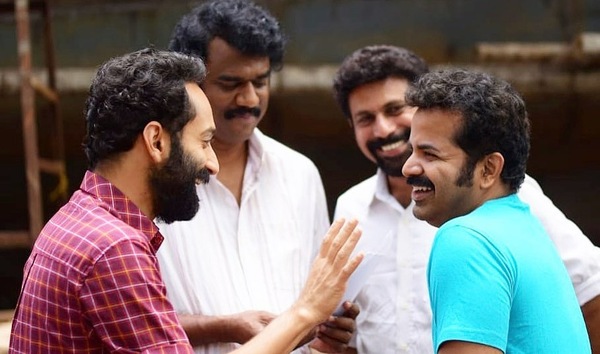
In Maheshettan’s case, even if the scenes are okayed after 10 takes, I still doubt myself because there were shots that went up to 20-30 takes. Because he is also an editor, every scene only has a limited number of shots. But Maheshettan is so clear about how a character walks, talks and even moves his eye in each of those shots and we have to meet those parameters, which is a Herculean task. As an actor, these processes excite me. I have enjoyed working in movies like Kismath and Urumbukal Urangarilla in which I have defined the actor’s body language, style and thoughts. But with Malik, apart from understanding the script and learning my lines, I went there as a clean slate and did exactly what Maheshettan told me.
You have said this in previous interviews of how there’s always a part of you in the characters you play. In that sense, what were the influences for superstar Agosh Menon in Mohan Kumar Fans?
I have been in the industry for 11 years now and I know such people. When two actors meet, we share our stories and similarly when we work with scriptwriters and directors, we also get to hear their experiences. We also get to observe the change in body language of people who become stars overnight. These characters are easier to play. But I don’t know who David Christudas is. I had to put in a lot of effort to play someone like him who after a point in his life loses everything, while his friend Sulaiman achieves all he set out for.
That said, I enjoyed doing Mohan Kumar Fans even though I only shot for eight days. I worked in the movie after Malik and Jismon, who is a friend, would okay the shot after just one or two takes. After a while, I told him, ‘As far I am concerned, my work is important and if you need 100 retakes for it, I will do it.’ Jismon is someone who doesn’t even say a word if you poke him with a stick. He told me, ‘Aliya, this is fine. In fact, it is much better than how I have conceived it. So, what more can I say?’ But I would still ask for reassurance after every 2-3 scenes.
All three of these movies were completed before last year’s lockdown. After that is when you did Android Kunjappan 5.25 director Ratheesh Balakrishnan Poduval’s Kanakam Kamini Kalaham, which also has Nivin Pauly and Gracy Antony. How different was Ratheesh’s filmmaking style?
It’s so cool working with him. The role was initially meant for another actor. I was cast in a major part in Ratheeshettan’s next film Nna, Thaan Case Kodukku. I don’t often ask other people for a chance to work with them. But during the pandemic, everybody became a bit insecure because it’s not necessary that people will have to remember us after all this is over. So, I asked him to call me if something good comes up. That’s when the actor who was initially cast to play a hotel manager in the movie had to opt out because he was a primary contact. So, Ratheeshettan sent me the script and asked me to call him back after reading it in two hours.
I wanted to work with him for long. I have known since I was at Film and Television Institute of India (FTII), Pune. He used to hang around with my seniors including editor Manoj Kannoth. So, that connection was there. When I read the script of Kanakam Kamini Kalaham, I was blown away. There are only 5-6 characters in the movie and I am one among them. I also thought, irrespective of the role, if I work with him, I will get to understand his process that would help me in his next film. Most importantly, it’s a luxury for an actor to shoot during the lockdown.
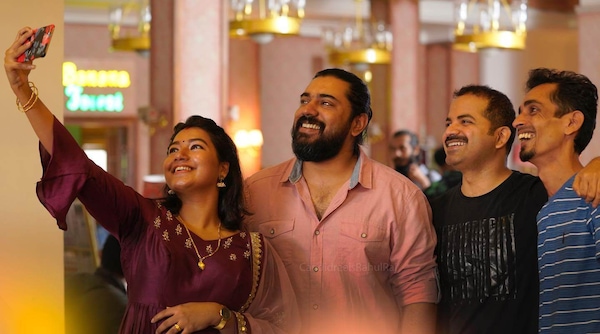
So, I agreed to do the movie. But when we began shooting it, the entire film just went up a notch. In most of the films, we do comedies that guarantee minimum laughs. For instance, people thought Agosh Menon was funny because of his situation; it didn’t need me to be convincing. Ratheeshettan, as a filmmaker, is crazy and his sense of humour is unbelievable. If you talk to him for five minutes, he will crack at least three jokes that will have you laughing out loud. It was working with someone crazier than me. So, the comedy in the movie is a bit over the top, it’s not that realistic.
Also, another advantage we had was that the entire movie, which happens in a hotel, was shot in order. So, we could accurately portray the emotional graph of our characters. There were so many scenes that Ratheeshettan added later because of that. The movie also had an interesting cast – Nivin, Grace, Jaffer Idukki, Rajesh Madhavan and Joy Mathew. We could wrap it up in 20 days.
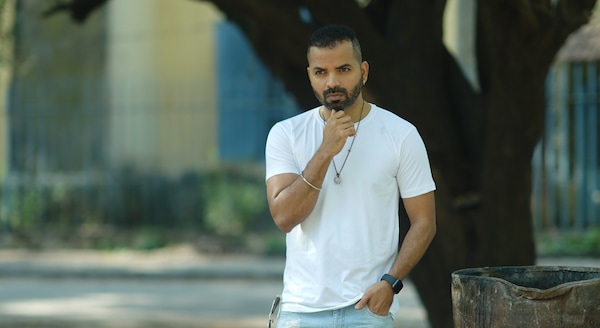
You began acting when you were in Class 4 and went on to graduate from FTII. While you had a great start with Shyamaprasad’s Rithu in 2009, did you have to realign your expectations with the kind of roles that came your way after that?
When we passed out of FTII, the actors we had in mind were Naseeruddin Shah, Irrfan, Robert De Niro and Marlon Brando. I remember telling my mother, ‘Amma, I would do one movie a year. I will do its background work for at least six months, by staying where the character is from.’ My elder brother asked my mother, ‘Is he ok? He’s crazy because he doesn’t have a single film and he’s saying that he will only do one movie a year. How many movies is he going to do in his career?’
But once I entered the industry, reality hit me. The film industry is about the survival of the fittest. Fortunately, I was able to survive from the beginning; I haven’t done anything else since graduating from film school. I think it’s a blessing that I have been able to make a living by acting in films and doing workshops.
Joy Mathew’s Shutter, which released in 2012, was the movie that made use of Vinay the actor. How pivotal was that in your career?
Shutter had one of the best screenplays. It wasn’t easy for me to play a character based in Kozhikode. A lot of people including Joy sir felt my casting wasn’t apt. But cinematographer Hari Nair, who was my senior at FTII, convinced Joy sir that I can pull it off. That character is very close to me. I think it’s all part of a journey and if you were to highlight the most noted among my initial films, Apoorvaragam and Shutter would be there in the list.
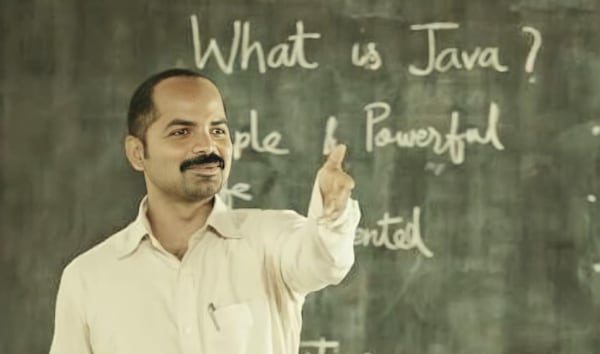
That brings us to Premam, which made you a household name. How much did you benefit from playing the role in Alphonse Puthren’s blockbuster in 2015?
Premam created history. I don’t think there has been another film like that since. I remember I had to sit in the very first row to watch the movie with my father, who was unwell. The theatre owners couldn’t do anything about it. All theatres were houseful for more than two weeks in Kerala. More than my character, the movie was a juggernaut.
When Alphonse first called me for the film, I couldn’t do it because of certain financial difficulties. I had to back out, but he told me, ‘Vinay, do this film and after that when you ask people for more money, they will give you.’ That was when I did a small role in How Old Are You? and it was noted. I told him, ‘I already did such a role’. He asked me to trust him and it happened just like he told me. Even today, when people don’t identify me, I just have to say ‘Java sir from Premam’ and they immediately recollect.
After Premam and before Thamaasha, you played the lead role in God Say, a movie for which you had put in a lot of work but went unnoticed. How did you feel about that?
I was gutted. See, the advantage of doing a film like Malik is that the people around the world will watch it without anyone asking them to. The entire industry shared the first look poster of Thamaasha that had my face. But a movie like God Say found it tough to get a space. It was directed by Sherrey, a talented filmmaker from Kannur. I had to put on weight for the first phase of the film and then I became lean for the scenes where the character embraces Gandhism. The plan was to shoot it in three schedules. So, I packed on the pounds and we began shooting, but in two days, we had to halt as the producers said they didn’t have money. The film was filled with struggles, most of the shoot was in a lodge where guest workers were put up. That lodge was also converted into a hospital, just by partitioning the rooms with a cloth.
My character though was extremely interesting and the filmmaker was also a visionary. But because the producers were unprofessional, they didn’t distribute it properly and nobody watched the film. It’s probably the only film that my mother and wife haven’t watched. IFFK was the only festival we sent the film to and I had to shell out the money for the subtitles. But it received a warm reception at IFFK.
In 2019, Thamaasha’s Sreenivasan sir proved that Vinay Forrt could carry a film on his own. It was also a movie that prompted you to not take up roles for survival anymore. How much did working in the film and its success shape your career?
Before Thamaasha, my movies Urumbukal Urangaarilla and Hello Namasthe were also hits. I don’t usually watch my films more than once, but Urumbukal Urangarilla is a film that I like to repeatedly watch. Despite it being a success, people didn’t accept it because it was directed by a newcomer and I had played the lead role.
The major difference while doing Thamaasha was that it had four big shots – Samir Thahir, Lijo Jose Pellissery, Shyju Khalid and Chemban Vinod Jose – as its producers. It’s a movie that had the most caring people. It didn’t have a hierarchy and everybody functioned as one.
Work-wise too, I didn’t have to do much because the team’s vision was clear. Samir and Shyju were there throughout the shoot and each shot had to be approved by them. I didn’t even feel like I was working, apart from being on the sets at 6am. There would only be a minimal number of scenes every day and the team’s idea was to create an environment where the artistes could be genuine.
For instance, there was this rehearsal scene where Navas Vallikunnu and I were talking about getting permission from my parents. After shooting the scene, Samir, who had cranked the camera for technically brilliant movies like Big B and Bangalore Days, told me, ‘This is the most we can do. It’s a performance-oriented film and it depends solely on your shoulders. I will be shooting from the sidelines.’ So, if I am saying a line during the rehearsal facing the right, he wouldn’t make me turn left for the camera. He would light up the right and shoot it accordingly.
Like Urumbukal Urangaarilla, you have been part of a lot of unconventional movies helmed by relative newcomers such as Masala Republic, Rasputin and Paapam Cheyyathavar Kalleriyatte. Do more such movies come to you or do you pick the offbeat choices from the ones that are being offered?
I think I have always only had limited choices to pick from. There’s always that craving for an original idea. Right now, I am able to afford that wait. After getting to know that there are a few people who watch my films solely because I am in it, I have also become responsible somehow. I have started thinking of doing roles that I haven’t done before.
What are your next projects?
I have done a small thriller during the lockdown called Vaathil, which also has Anu Sithara. I am now shooting for TK Rajeevkumar’s Bermuda, which is a beautiful fantasy. It’s technically well-made and is about the journey of Shane Nigam’s character and mine.
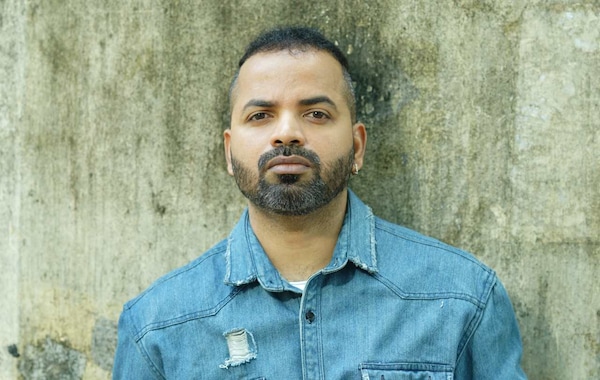
To conclude, what are your expectations for your career after the release of Malik, Churuli and Kanakam Kaamini Kalaham?
I think I will be more decisive. Actors’ luxury is when they can greenlight a project that they want. The rest will happen eventually – be it great scripts or working with brilliant filmmakers. You have to acknowledge that cinema is art as well as business.
My hope is that my films have a minimum value of Rs 1.5Cr. When that happens, I can be choosy and do soulful movies. A movie like Malik is extravagant for me as an actor. I am more than happy doing films like Thamaasha. But I want the films I do to be evergreen and have commercial value. I don’t want awards or glamour. As long as I can survive, I am happy. We grow as artistes only when we do films and characters that push us to unfamiliar territories and stretch us. I hope these movies can enable me to do that.

 Premium
Premium